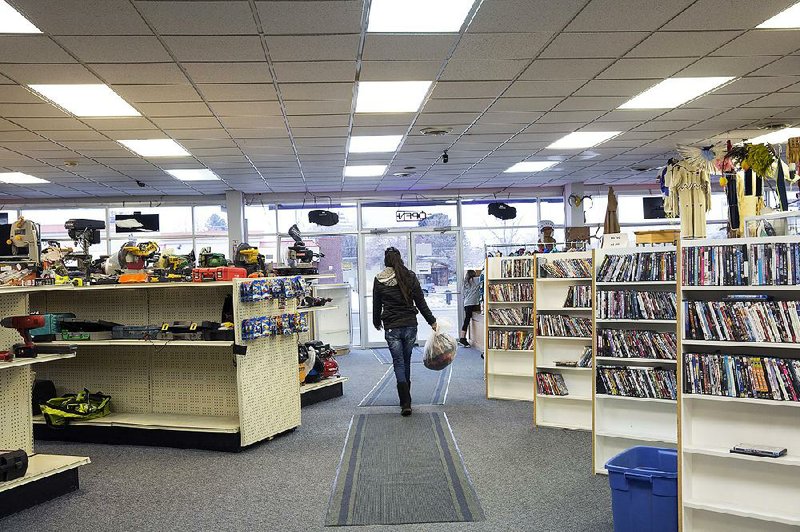As the longest government shutdown in U.S. history continues, federal workers who are not getting paid are increasingly turning to pawnbrokers for short-term loans.
The turnout is small -- a few people per day, pawnbrokers said. But many said they expected the numbers to increase.
Stories are emerging from places like Billings, Mont.; Capitol Heights, Md.; Alexandria, Va.; Las Vegas; and Anchorage, Alaska.
"They're just bringing more and more in because they're getting behind," said Blaine Fortner, who owns a pawnshop in Billings.
About 800,000 federal workers have missed a paycheck during the weekslong shutdown. Thousands have filed for unemployment benefits. Private businesses, banks and charitable organizations are offering help in the form of suspended fees and food banks.
Pawnbrokers said they were essentially providing another form of assistance.
Fortner said an average of three federal workers each day walk into his Billings shop, Yellowstone Pawn.
Some are what Fortner calls "regulars," federal employees with cash-flow problems who have made use of his shop before. Billings has a federal courthouse and offices for the Interior Department and the Bureau of Reclamation, among others.
But there are also new faces, like the man who recently went in with high-quality Pendleton blankets -- woven in the Pacific Northwest with American Indian designs -- and said he had been furloughed by the Bureau of Indian Affairs. The blankets, if new, would probably cost a few hundred dollars. Fortner gave him about $50.
"He just mentioned that things were getting a little tight," Fortner said.
Although pawnbrokers can buy items outright, a typical pawn works like this: The pawnbroker lends money to customers based, in part, on the value of collateral they take into the shop, like the blankets.
Customers pay interest on that loan, which lasts for a few months. The exact amount varies by business and is also based on regulations in each state. Fortner, for example, charges 20 percent interest per month and holds items for two months.
The customers can then either repay the loans in full and get their items back, or the pawnbroker gets to keep the merchandise and sell it.
In theory, because federal employees are expected to receive back pay when the shutdown ends, they should be able to recover items they pawned.
But Fortner said that about six times a day, he gets a call from a federal worker who pawned an item and is worried about paying the loan back.
Michael Mack, owner of Max Pawn in Las Vegas, said he is seeing a similar uptick in federal workers in his store. Mack said he was offering to waive the interest payments for furloughed federal workers for four-month loans.
"We're dealing with people that are affected by cash-flow problems all the time," Mack said. "These are people that didn't plan on it at all."
Mack said one woman went in last month and said her family was visiting from California and that she did not have enough money for Christmas dinner. So she pawned her mother's wedding ring.
"She was so scared to be in there," he said. "She never expected this to happen to her."
Richard Andrews, a pawnbroker at Alexandria Pawn in Virginia, also said he had been seeing more federal workers in his shop. Some talk about their stories. Others are reticent. But Andrews said he could usually tell if they were federal workers.
"You can tell a lot by people's shoes," he said. "They have dress shoes on. They're not wearing tennis shoes or running shoes."
A Section on 01/20/2019
